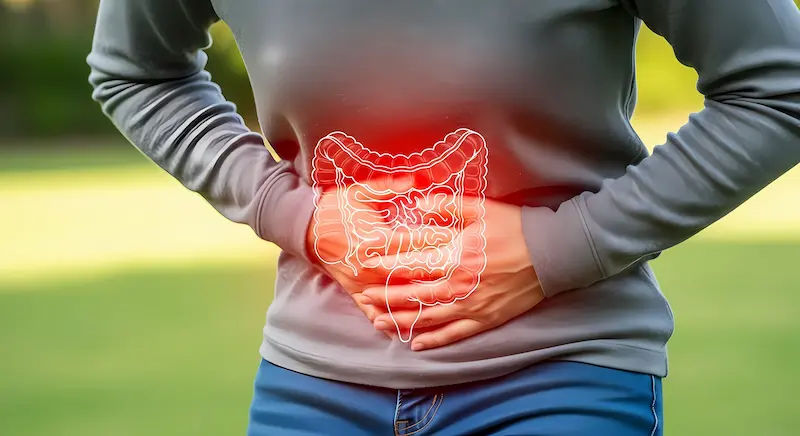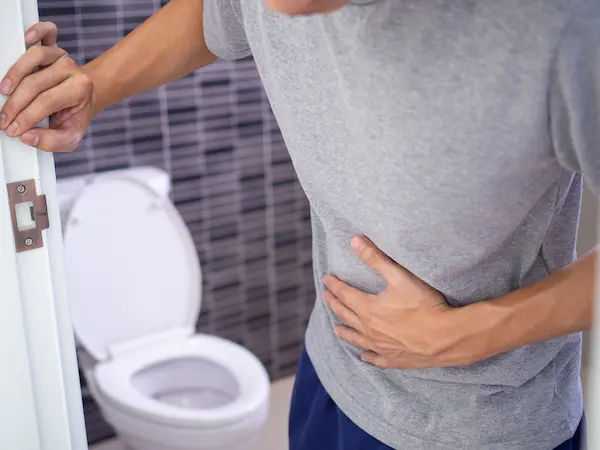Guide to Managing Constipation: Causes, Relief & Prevention
Learn how to manage constipation effectively with this comprehensive guide. Discover causes, home remedies, dietary tips, and when to seek medical advice for relief and prevention.


Introduction
Feeling blocked up, sluggish, and uncomfortable? You're not alone. Constipation is one of the most common gastrointestinal complaints, affecting people of all ages. It's characterised by infrequent bowel movements, difficult passage of stools, or a sensation of incomplete evacuation. While occasional constipation is normal, persistent issues can significantly impact your quality of life, causing bloating, abdominal pain, and general malaise. The good news is that for most people, constipation is manageable and often preventable with simple dietary and lifestyle changes. This comprehensive guide will walk you through everything you need to know—from understanding the root causes of constipation to exploring effective home remedies and knowing when it's time to seek professional medical advice. Let's dive in and get your digestive system back on track.
What Exactly is Constipation? Understanding the Basics
Constipation isn't just about not going every day. Medically, it's often defined as having fewer than three bowel movements per week. However, frequency is only one part of the picture. The consistency and ease of passage are equally important.
Common Symptoms of Constipation
Recognising the signs is the first step toward finding relief. Symptoms include:
- Passing fewer than three stools a week.
- Having lumpy or hard stools.
- Straining to have bowel movements.
- Feeling as though there's a blockage in your rectum that prevents bowel movements.
- Feeling as though you can't completely empty the stool from your rectum.
- Needing help to empty your rectum, such as using your hands to press on your abdomen.
How Often Should You "Go"? Defining Normal Bowel Movements
There's a wide range of "normal." While some people go multiple times a day, others go only a few times a week. What's more important is a consistent pattern that is comfortable for you. A sudden, persistent change in your bowel habits is a more significant indicator of a problem than the exact number of trips to the bathroom.
Consult a Gastroenterologist for the best advice
Uncovering the Root Causes: Why You Get Constipated
Constipation typically happens when stool moves too slowly through the digestive tract. This can be due to a variety of factors.
Dietary and Lifestyle Factors
This is the most common category. Causes include:
- Low-Fibre Diet: Fibre adds bulk and softens stool. Not eating enough fruits, vegetables, and whole grains is a primary culprit.
- Inadequate Hydration: Fluids help fibre do its job. Without enough water, stool can become hard and difficult to pass.
- Lack of Exercise: Physical activity increases muscle activity in your intestines, helping to move stool along.
- Ignoring the Urge: Regularly delaying a bowel movement can weaken signals over time and lead to stool retention.
- Stress: High stress levels can disrupt your digestive system's natural rhythms.
Underlying Medical Conditions and Medications
Sometimes, constipation is a symptom of another issue:
- Medical Conditions: Irritable bowel syndrome (IBS), hypothyroidism, diabetes, neurological diseases like Parkinson's, and pelvic floor disorders.
- Medications: Certain pain medications (especially opioids), antidepressants, antacids containing calcium or aluminum, and blood pressure drugs can cause constipation.
Effective Home Remedies for Constipation Relief
Before turning to medication, try these proven natural remedies for constipation. They are often all that's needed to restore regularity.
The Power of Fibre: Soluble vs. Insoluble
Fibre is indigestible plant matter. There are two types, both crucial for constipation relief:
- Soluble Fibre dissolves in water to form a gel-like material, which helps soften stool. Great sources include oats, barley, nuts, seeds, beans, lentils, and peas.
- Insoluble Fibre adds bulk to stool and helps it pass more quickly. Find it in whole grains, wheat bran, and many vegetables like cauliflower and green beans.
Aim for 25-35 grams of total fibre per day, but increase your intake gradually to avoid gas and bloating.
Hydration: Why Water is Your Best Friend
Think of fibre as a sponge. Without water, it just becomes a hard clump. With water, it becomes soft and bulky. Drinking plenty of fluids—especially water, herbal teas, and clear soups—is essential for making home remedies for constipation work effectively.
Get Moving: How Exercise Stimulates Your Gut
Physical activity, even a daily 30-minute brisk walk, can work wonders. Exercise helps accelerate your breathing and heart rate, which stimulates the natural contractions of your intestinal muscles. This helps push stool out more quickly and efficiently.
The Toilet Position: Does It Really Matter?
Surprisingly, yes. The modern sitting toilet position isn't ideal for complete evacuation. Squatting straightens the rectum and relaxes the puborectalis muscle, making it easier to pass stool. You can simulate this position by placing a small footstool under your feet while on the toilet, raising your knees above your hips.
Over-the-Counter (OTC) Solutions and Laxatives
If lifestyle changes aren't enough, OTC options can help. It's important to understand the different types of laxatives.
Types of Laxatives and How They Work
- Bulk-Forming (e.g., Psyllium Husk, Methylcellulose): These are generally the gentlest and safest option. They work like dietary fibre, absorbing water to form a soft, bulky stool.
- Osmotic (e.g., Polyethylene Glycol, Magnesium Hydroxide): These draw water into the colon from surrounding body tissues, softening the stool and stimulating bowel movement.
- Stool Softeners (e.g., Docusate Sodium): These add moisture to the stool to make it softer and easier to pass, often recommended after surgery or childbirth.
- Stimulants (e.g., Bisacodyl, Senna): These cause rhythmic contractions of the intestinal muscles to push stool along. They are more aggressive and should be used sparingly.
A Word of Caution on Laxative Use
While helpful for occasional relief, long-term or frequent use of stimulant laxatives can make your body dependent on them and can damage the colon's natural nerve function. They should not be your first or only line of defense. Always start with bulk-forming agents and use other types only as directed or recommended by a doctor.
When to Worry: Signs You Need to See a Doctor
Occasional constipation is normal, but persistent issues warrant medical attention.
Red Flag Symptoms
Consult a doctor if you experience:
- Constipation that lasts longer than three weeks despite lifestyle changes.
- Severe bloating or abdominal pain.
- Blood in your stool or rectal bleeding.
- Unexplained weight loss.
- Constant fatigue (a potential sign of iron deficiency anemia).
- Bowel incontinence.
These could be signs of a more serious underlying medical condition. If your condition does not improve after trying these methods, book a physical visit to a doctor with Apollo24|7 for a comprehensive evaluation. They can help rule out conditions like colorectal cancer, pelvic floor dysfunction, or other digestive disorders.
Constipation in Special Cases
Certain life stages and conditions require tailored approaches.
Managing Constipation During Pregnancy
Hormonal changes and pressure from the growing uterus slow down digestion. Pregnant women should focus on high-fibre foods, safe exercise like prenatal yoga, and staying hydrated. Always consult an obstetrician before taking any laxatives.
Constipation in Children and Older Adults
Children often experience constipation due to diet ("picky eating") or fear of using the toilet. Older adults are more susceptible due to slower metabolism, medication use, and reduced mobility. Management involves gentle dietary modifications and ensuring easy access to bathroom facilities.
Preventing Constipation: Long-Term Healthy Habits
Prevention is always better than cure. Incorporate these habits into your daily routine:
- Eat a balanced diet rich in high-fibre foods from the start.
- Drink fluids throughout the day.
- Exercise regularly to keep your internal muscles active.
- Don’t ignore the urge to have a bowel movement.
- Manage stress through techniques like meditation or deep breathing.
Conclusion
Constipation, while uncomfortable and frustrating, is usually a temporary setback that can be resolved with mindful changes to your diet and lifestyle. By understanding the causes—from a lack of high fibre foods and hydration to more complex medical issues—you can take empowered steps toward relief. Remember to prioritise fibre, water, and movement as your first line of defense. View OTC laxatives as a short-term aid, not a long-term solution. Most importantly, listen to your body. Persistent or severe symptoms are a clear signal to seek professional guidance. Taking proactive care of your digestive health is a key component of your overall well-being. If symptoms persist beyond two weeks, consult a doctor online with Apollo24|7 for further evaluation and personalised advice.
Consult a Gastroenterologist for the best advice
Consult a Gastroenterologist for the best advice

Dr Bhargav Vuppumalla
General Physician/ Internal Medicine Specialist
5 Years • MBBS MD GENERAL MEDICINE
Bengaluru
Apollo Medical Center, Marathahalli, Bengaluru

Dr Harish K C
Gastroenterology/gi Medicine Specialist
15 Years • MBBS MD DM MRCP(UK) (SCE-Gastroenterology and Hepatology)
Bengaluru
Apollo Hospitals Bannerghatta Road, Bengaluru

Dr Rohit Sureka
Gastroenterology/gi Medicine Specialist
15 Years • MBBS, DNB General Medicine, DNB Gastroenterology
Jaipur
Apollo 247 virtual - Rajasthan, Jaipur

Dr. Shivaraj Afzalpurkar
Gastroenterology/gi Medicine Specialist
13 Years • MBBS, MD General medicine (Gold medalist), DrNB (Gastroenterology), MNAMS
Bengaluru
Apollo Clinic, JP nagar, Bengaluru

Dr. Mohd Irtaza
Gastroenterology/gi Medicine Specialist
11 Years • MBBS, MD Internal Medicine, DM Gastroenterology
Delhi
Apollo Hospitals Indraprastha, Delhi
(100+ Patients)
Consult a Gastroenterologist for the best advice

Dr Bhargav Vuppumalla
General Physician/ Internal Medicine Specialist
5 Years • MBBS MD GENERAL MEDICINE
Bengaluru
Apollo Medical Center, Marathahalli, Bengaluru

Dr Harish K C
Gastroenterology/gi Medicine Specialist
15 Years • MBBS MD DM MRCP(UK) (SCE-Gastroenterology and Hepatology)
Bengaluru
Apollo Hospitals Bannerghatta Road, Bengaluru

Dr Rohit Sureka
Gastroenterology/gi Medicine Specialist
15 Years • MBBS, DNB General Medicine, DNB Gastroenterology
Jaipur
Apollo 247 virtual - Rajasthan, Jaipur

Dr. Shivaraj Afzalpurkar
Gastroenterology/gi Medicine Specialist
13 Years • MBBS, MD General medicine (Gold medalist), DrNB (Gastroenterology), MNAMS
Bengaluru
Apollo Clinic, JP nagar, Bengaluru

Dr. Mohd Irtaza
Gastroenterology/gi Medicine Specialist
11 Years • MBBS, MD Internal Medicine, DM Gastroenterology
Delhi
Apollo Hospitals Indraprastha, Delhi
(100+ Patients)
More articles from Constipation
Frequently Asked Questions
What are the best natural laxatives for immediate relief?
While true 'immediate' relief is hard to achieve naturally, prunes and prune juice are highly effective due to their high fibre and sorbitol content. Kiwi fruit, pears, and a cup of coffee can also stimulate bowel movements for some people.
Can probiotics help with chronic constipation?
Yes, certain strains of probiotics, particularly Bifidobacterium lactis and Lactobacillus casei Shirota, have shown promise in improving gut motility and stool frequency in some studies. They can be found in yogurts with live cultures and supplements.
Is it normal to experience bloating when increasing fibre?
Yes, it's common to experience some gas and bloating when you first increase your fibre intake. To minimise this, add fibre to your diet slowly over a few weeks and ensure you are drinking enough water to help your digestive system adjust.
How long is it safe to be constipated before seeking help?
If you have made significant dietary and lifestyle changes for two to three weeks with no improvement, or if you experience severe pain, vomiting, or rectal bleeding, you should seek medical advice immediately.
What is the difference between constipation and irritable bowel syndrome (IBS)?
Constipation is a symptom, while IBS is a chronic disorder. IBS with constipation (IBS-C) involves recurrent abdominal pain or discomfort along with constipation. A doctor can help diagnose IBS based on a specific set of criteria (the Rome IV criteria).

.webp)


